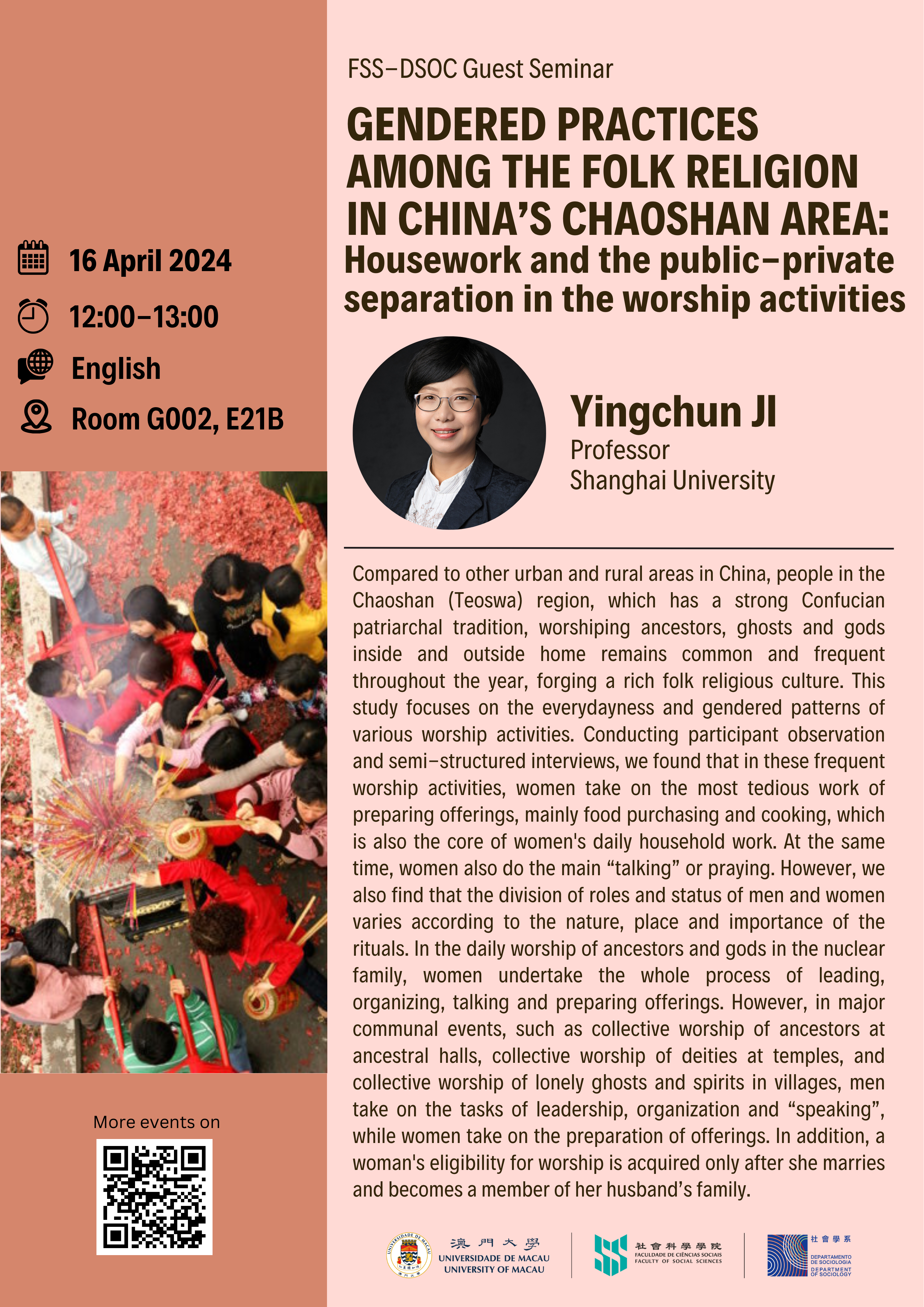
Date: April 16
Time: 12 pm – 1 pm
Speaker: Prof. Yingchun JI
Venue: E21B-G002
Organizer: Department of Sociology
Phone: 8822 4595
Compared to other urban and rural areas in China, people in the Chaoshan (Teoswa) region, which has a strong Confucian patriarchal tradition, worshiping ancestors, ghosts and gods inside and outside home remains common and frequent throughout the year, forging a rich folk religious culture. This study focuses on the everydayness and gendered patterns of various worship activities. Conducting participant observation and semi-structured interviews, we found that in these frequent worship activities, women take on the most tedious work of preparing offerings, mainly food purchasing and cooking, which is also the core of women’s daily household work. At the same time, women also do the main “talking” or praying. However, we also find that the division of roles and status of men and women varies according to the nature, place and importance of the rituals. In the daily worship of ancestors and gods in the nuclear family, women undertake the whole process of leading, organizing, talking and preparing offerings. However, in major communal events, such as collective worship of ancestors at ancestral halls, collective worship of deities at temples, and collective worship of lonely ghosts and spirits in villages, men take on the tasks of leadership, organization and “speaking”, while women take on the preparation of offerings. In addition, a woman’s eligibility for worship is acquired only after she marries and becomes a member of her husband’s family.
Yingchun Ji is a professor in the School of Sociology and Political Science at the Shanghai University. Dr. Ji obtained her Ph.D. in the sociology department at UNC-Chapel Hill. Her research interests include family sociology, gender studies, social demography, and modernity in China. Her recent projects investigate the on-going institutional changes of Chinese marriage and family. In addition to empirical studies, Dr. Ji has dedicated herself to developing localized concepts and theories to understand changes in the domains of gender, family, demographic transition, and on-going modernization in China, including mosaic gender ideology, mosaic familism, and mosaic modernity.

